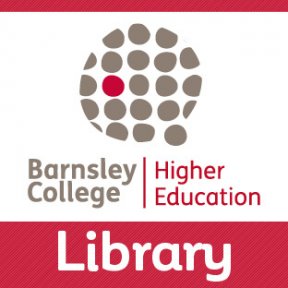In this section
Exam Revision Tips
Revision Guide Tips
Make a timetable:
This will help you to plan your revision and stick to it
Manage your time:
- Use any spare time for revision
- Practice regularly – every day is better than once a week.
- Regular revision will help you to remember your material
- Revising for half an hour to an hour every day is better than once per week
- Work out the best time of the day for you to be able to concentrate.
- Reward yourself after each revision session
Tips:
- Take short breaks – at least every hour
- Stick post it notes around different objects in your bedroom
- Carry small notes or prompt cards around with you, so if you have a spare 10 minutes you can look at them
- Find a comfy area and make sure you are warm and have something to eat and drink
- Do not put revision off – just get on with it
- Do not just read from you notes and then just rewrite, over and over…
- Do lots of practice exam questions
- Memorise information sufficiently
- Read the exam questions to decipher what they actually mean and what they require from you
Before the exam:
- Prepare well for the exam so you feel confident, although you will probably still feel nervous
- Anything that makes you laugh will help you to relax
- Make sure you have something to eat before the exam
- And try to get lots of sleep
- Make sure you arrive in plenty of time for the exam to give you a quiet moment to reflect. Nothing is worse for exam nerves than last minute panic and rushing.
You might want time to quickly revisit your revision notes before the exam begins, others find this makes it more confusing at last minute; you are the best judge of your preferred learning style. If it doesn’t work for you, don’t feel you have to!
- Ensure you read the question fully before giving your answer. Where a student gets it wrong, it’s often because they have misread the question or answered in haste. The first word of the question usually dictates what kind of response they are looking for.
- If you’re stuck on a question, carry on with the paper and come back to it later. Sometimes you will remember the answer as you work through the rest of the exam as this gives you time to think. Whenever you try to focus on something too much, it always makes it harder to remember!
- Always read back through your paper to check your answers and make sure you haven’t missed any questions by checking your question numbers follow on from one to the next without any gaps.
Command verbs, explanation and guidance:
Compare = Consider and describe the similarities (and differences) between two or more features.
Define = the meaning of, technical vocabulary, terms, etc.
Describe = Give a detailed written account of.
Discuss – talk/write = about a topic in detail, considering the different issues, ideas, opinions related to it.
Identify = Recognise a feature, usually from a document, image.
Label = Add names or descriptions, indicating their positions, on an image, drawing, diagram.
List = Give as many answers, examples etc. as the question indicates.
Name = Give the (technical) name of something.
Select = Choose the best, most suitable, by making careful decisions.
State = Give the answer, clearly and definitely.
Summarise = Give a brief statement of the main points (of something).
Examination technique:
- Candidates with a good understanding of the subject being assessed can often lose marks in exams because they lack experience or confidence in exams, or awareness of how to maximise the time available to get the most out of the exam. Here is some suggested guidance for areas that could be covered in advance to help learners improve exam performance.
- Have a plan, based on the exam start and finish time for how long to spend on each question/section of the exam.
- Be aware of how many marks are available for each question, how much you should expect to write for each question and allow most time for those questions which have the most marks available.
At the start of the exam, candidates:
- Should carefully read through the instructions before answering any questions.
- May find it helpful, where possible, to mark or highlight key information such as command words and number of marks available on the question paper.
- Identify questions which require an extended written answer and those questions where all or part of the question may be answered by giving bullets/lists, rather than full sentences.
Answering the questions:
- Candidates do not have to answer exam questions in any particular order.
- Tackle first those questions which you find easiest. This should help you get into the ‘flow’ of the exam and help confidence by building up marks quickly and at the start of the exam.
- Tackle the extended answer question at an early stage of the exam to make sure you spend sufficient time on it and do not run out of time at the end of the exam.
- Candidates should avoid wasting time by repeating the question, either in full or in part in their answer.
Good Luck!
Opening Times
| Monday | Staffed 8.30am to 5pm; Self-service 5pm to 8.45pm |
|---|---|
| Tuesday | Staffed 8.30am to 5pm; Self-service 5pm to 8.45pm |
| Wednesday | Staffed 8.30am to 5pm; Self-service 5pm to 8.45pm |
| Thursday | Staffed 8.30am to 5pm; Self-service 5pm to 8.45pm |
| Friday | Staffed 8.30am to 4.30pm |
| Saturday | Closed |
| Sunday | Closed |
Find Us
Barnsley,
S70 2YW

